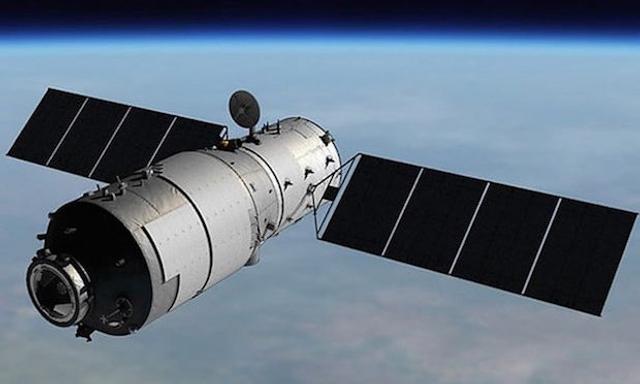In case you had plans for tomorrow, maybe a roast or something, those plans could very well be interrupted a space station falling down on you and ruining your roast.
Tiangong-1 - which literally means Celestial Palace-1 in English - was China's first prototype space station used for laboratory services and to demonstrate the capabilities of orbital rendezvous and docking. It's been in orbit around our planet since 2011 and at some point tomorrow, the space station will begin its descent into Earth's atmosphere.
The space station, which is roughly the size of a Dublin Bus and weighs 8.5 tons, is being tracked by a number of scientific groups and is travelling roughly at a speed of 18,000 miles an hour. While most satellites in orbit burn up on reentry, the size of Tiangong-1 means that there's a distinct possibility that some of it will survive reentry and be substantial enough to cause a problem.
According to the Aerospace Corporation, the odds of Tiangong-1's wreckage hitting anyone in particular are pretty low. How low? One in one trillion, by their figures.
The current estimated trajectory by the European Space Agency has the space station somewhere between 43 degrees north latitude and 43 degrees south - which is a massive area on a global map. Basically, draw a line from the border of Spain and France right around the globe and from Tasmania right around the globe and it's somewhere in that general area.
If you're drawing that in your mind globe, it means Ireland is way out of the danger zone - so unless you happen to be somewhere in that general vicinity in the next couple of days, you could potentially see Tiangong-1 come down in front of you.
The CNSA - that's China National Space Administration, who have a logo that looks way too similar to Star Trek's logo - have briefed the UN on the trajectory of Tiangong-1 and have vowed to inform any country where the space station is expected to land when it comes closer to Earth.
Well, isn't that nice of them? You can track Tiangong-1's orbit here if you fancy it too.










































































